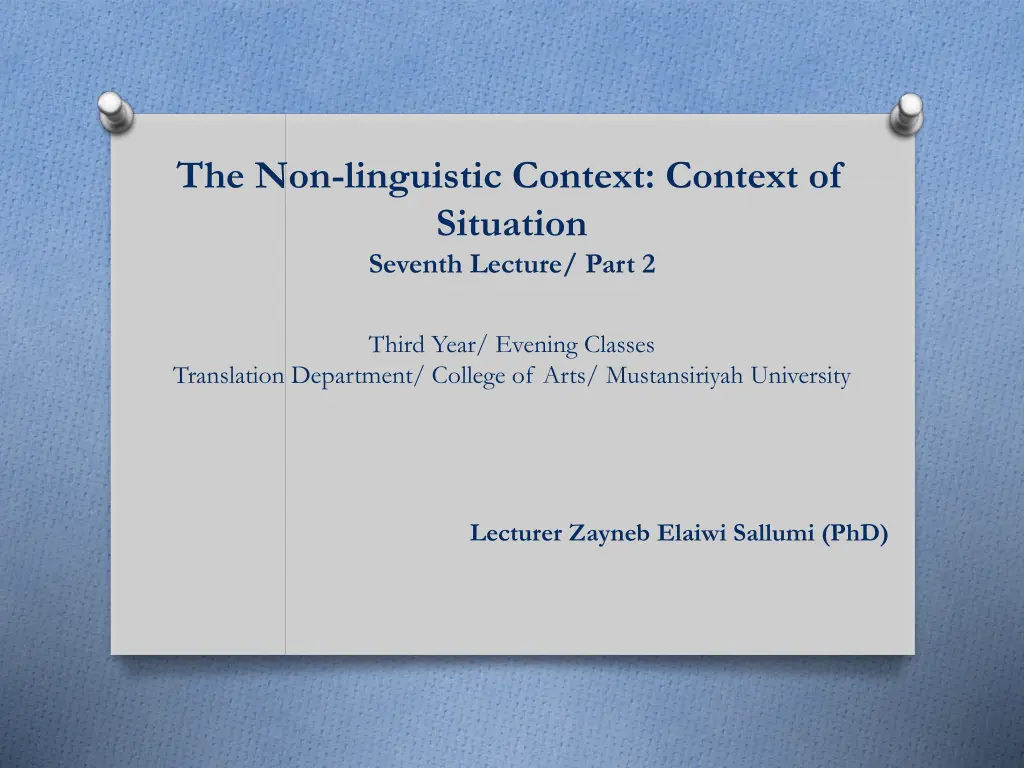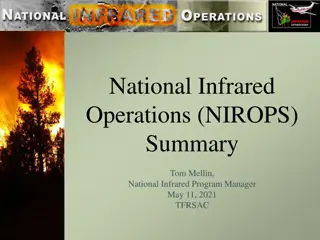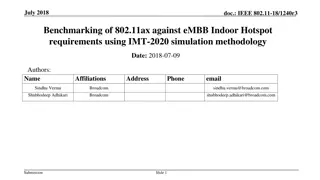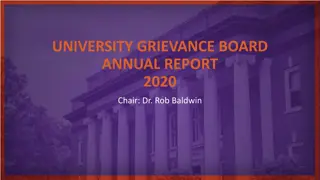
Understanding Context in Linguistic Analysis: Insights from Firth and Malinowski
Gain insights into the significance of context in linguistic analysis through the perspectives of Firth and Malinowski. Explore the role of context of situation, relevant features of participants, objects, and verbal actions. Critically analyze different viewpoints and criticisms to deepen your understanding of linguistic theory.
Download Presentation

Please find below an Image/Link to download the presentation.
The content on the website is provided AS IS for your information and personal use only. It may not be sold, licensed, or shared on other websites without obtaining consent from the author. If you encounter any issues during the download, it is possible that the publisher has removed the file from their server.
You are allowed to download the files provided on this website for personal or commercial use, subject to the condition that they are used lawfully. All files are the property of their respective owners.
The content on the website is provided AS IS for your information and personal use only. It may not be sold, licensed, or shared on other websites without obtaining consent from the author.
E N D
Presentation Transcript
The Non-linguistic Context: Context of Situation Seventh Lecture/ Part 2 Third Year/ Evening Classes Translation Department/ College of Arts/ Mustansiriyah University Lecturer Zayneb Elaiwi Sallumi (PhD)
O Secondly: His views don t provide the basis of any workable semantic theory. He doesn t even discuss the ways in which context can be handled in a systematic way, to provide a statement of meaning. If context is to be taken as an indication of meaning, all stories would have the same meaning. His solution was to invoke secondary context , the context within the narrative; but that has no immediately observable statues.
Firths Viewpoint: O Firth felt that Malinowski s context of situation was not satisfactory for the linguistic approach to the problem. O Malinowski s context of situation was a bit of the social process, while Firth preferred to see it as part of the linguist s apparatus in the same way as the grammatical categories that he uses. It was best used as a suitable schematic construct to apply to language events and he, therefore, suggested the following categories:
A. The relevant features of the participants: persons, personalities: (i)The verbal action of the participants. (ii) The non-verbal action of the participants. B. The relevant objects. C. The effects of the verbal action. - In this way contexts of situation can be grouped and classified; this is essential if it is to be part of the linguistic analysis of a language. - It s important to stress that Firth saw context of situation as one part of the linguist s apparatus or rather as one of the techniques of description.
Example: O I am going to get one for Bert. The contextual analysis of this sentence includes: What is the minimum number of participants? Three? Four? Where might it happen? In a pub? Where is Bert? Inside? Outside? What are the relevant objects? What is the effect of this sentence?
Criticism against Firths viewpoint: O He was ambiguous in his use of the word meaning and he grouped context and other dimensions such as grammar in similar levels in relation to the analysis of meaning whereas they are not.
The criticism is not entirely fair for three reasons: O This would have been true if there is a linguistic investigation that deals with relation of language with the outside world and is characteristics of language, but as many linguists have confined semantics to sense relations so it is not different from grammar as both are intralinguistic. distinct from the internal O It is not easy to distinguish between what is in language and what is in the real world. O Firth did not produce a total, monolithic linguistic model that could describe language.
Criticism of Firths view: O A second criticism of Firth s view is that it has very limited value. This doesn t prove that Firth was wrong, if we can t get very far with context of situation this is perhaps no more than a reflection of the difficulty of saying anything about semantics. It must be remembered that Firth believed that we could never capture the whole of meaning. One virtue of Firth s approach was that he set out to make only partial statements of meaning.





















